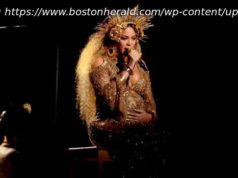In a career that began in the early 1960s at the powerful Top 40 station WABC-AM, Mr. Ingram gleefully mocked songs, singers, sponsors and the weather.
Dan Ingram, a popular disc jockey whose wisecracks and double entendres rippled through the air at rock ’n’ roll stations in New York City from the early 1960s to the early 21st century, died on Sunday at his home in Fort Lauderdale, Fla. He was 83.
His son Christopher said he died after choking on a piece of steak. He had received a diagnosis of Parkinsonian syndrome in 2014.
Mr. Ingram preceded the era of shock jocks, but he was a quick-thinking, somewhat bawdy jester who mocked songs, singers, sponsors and the weather at WABC-AM, a powerful Top 40 station that grew in the ’60s with the popularity of the Beatles, the Motown stable of artists and others.
Later, at WCBS-FM, the groundbreaking oldies station, he continued his drollery while exhuming the music he had played decades earlier.
“I like to have fun with my listeners,” Mr. Ingram told The New York Times in 1993 when he was at WCBS-FM. “I like them to use their minds. I like them to say, ‘I don’t believe he said that.’ But I don’t like to do sleaze.”
His irreverence was usually heard in short bursts, often during musical introductions before a song was sung.
In those exquisitely timed moments, called “talk-ups,” he might ridicule a song by Rosie and the Originals (“And now, ladies and gentlemen, the worst record ever recorded, ‘Angel Baby’ ”), tinker with the title of Elton John’s hit “Someone Saved My Life Tonight” (as “Someone Shaved My Wife Tonight”) and refer to Herb Alpert’s group, the Tijuana Brass, as “the Teeny Weeny Brass.”
Once, giving the weather report, he said: “I love brief showers. They’re fun. Watch those briefs coming down!”
Allan Sniffen, who runs MusicRadio77, a website devoted to the Top 40 legacy of WABC-AM, called Mr. Ingram “the greatest of his generation.” In a telephone interview, he added: “He was technically the best. He could make the records fit together, he was funny, and he was the best ad-libber I ever heard.”
Mr. Ingram, Mr. Sniffen said, “inspired a generation of young listeners to become radio people.”
With a deep voice that conveyed mischief, Mr. Ingram addressed his fans as “Kemosabe” (the Native American character Tonto’s term of endearment for the Long Ranger). He variously called his show the “Ingram mess,” the “Ingram flingram” or the “Ingram travesty.” And each day he named an “honor group” (like trombonists or garbagemen) and announced a word of the day, with a twisted definition.
“Contravene,” he once said, “is something that prevents babies.”
Daniel Trombley Ingram was born into a musical family on Sept. 7,1934, in Oceanside, N.Y. His father, John, played saxophone and flute for big bands, and his mother, Dorothy (Trombley) Ingram, was a cellist who led a chamber-music group, the Trombley Trio.
Smitten with radio, Mr. Ingram attended live broadcasts in Manhattan and entered a D. J. contest on Fred Robbins’s radio show at age 13. He finished last in a field of six. “The guy who won became a carpenter in New Jersey,” Mr. Ingram said in an interview in 2002 on the New Jersey FM station WFMU.
He attended Hofstra College (now Hofstra University) on Long Island but left before graduation to pursue a radio career, working at stations on Long Island and in Connecticut, Dallas and St. Louis. He joined WABC-AM in 1961 as it battled WMCA-AM for supremacy among rock listeners in the New York market. The other personalities at WABC included Bruce Morrow, known as Cousin Brucie, Ron Lundy, Chuck Leonard and Herb Oscar Anderson (who died last year). Of them, only Mr. Morrow survives.
Mr. Ingram stayed with WABC until it changed to a talk format in 1982. On his final broadcast, he signed off by saying, “The honor group of the day, my friend, is you, because if you hadn’t listened I would never have been here.”
After leaving WABC, Mr. Ingram held other radio jobs and did commercial voice-overs. But it was not until 1991 that he returned to prominence when he joined WCBS-FM, a powerhouse station built on playing classic rock ’n’ roll.
“I’m lucky as hell that there’s a place in New York where I can peddle my wares,” Mr. Ingram told The Times in 2002, a year before he retired. “Elderly disc jockeys aren’t exactly in great demand around the country.”
In addition to his son Christopher, who wrote a novel, “Hey Kemosabe!” (2014), based in part on his father’s experiences, Mr. Ingram is survived by his wife, Maureen Donnelly; four other sons, Daniel, David, Robert and Phillip; four daughters, Patricia Gavigan, Michelle Rydberg and Christina and Jacqueline Ingram; two stepdaughters, Laura Turetsky and Linda Ingram-Vargas; 26 grandchildren; and 12 great-grandchildren.
His first wife, Kathleen Patricia (Snediker) Ingram, died in a car accident in 1962; his marriages to Anita Strand and Jeannie Weigel ended in divorce.
Mr. Ingram’s freewheeling, smart-alecky approach had its moments of anxiety. In 1993, he told The Times that a disc jockey’s job is filled with “moments of terror interrupted by long periods of utter boredom.”
“You talk for 10 seconds, the music plays, you’ve got nothing to do.”






